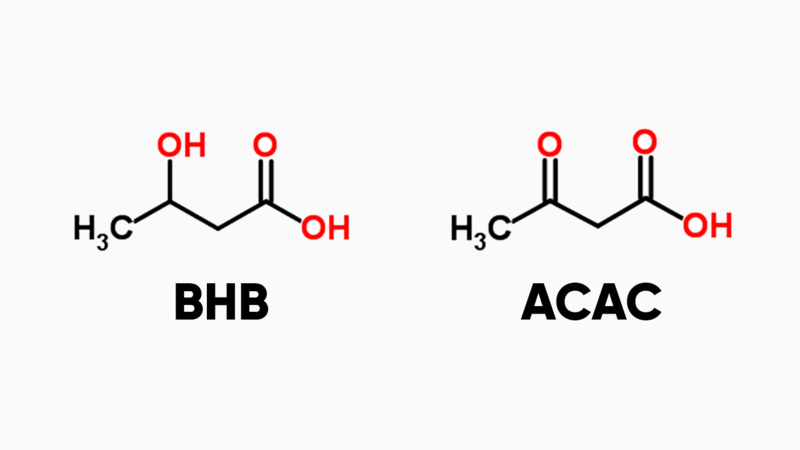Picking the Best Keto Supplement
1.98K
0
·
2019/08/11
·
17 mins read
☕
WriterShelf™ is a unique multiple pen name blogging and forum platform. Protect relationships and your privacy. Take your writing in new directions. ** Join WriterShelf**
WriterShelf™ is an open writing platform. The views, information and opinions in this article are those of the author.
Article info
Categories:
⟩
⟩
⟩
⟩
Tags:
Date:
Published: 2019/08/11 - Updated: 2020/05/27
Total: 4075 words
Like
or Dislike
More from this author
More to explore










Originally published on HVMN by Nate Martins
The ketogenic diet is trending up; the low-carb, high-fat diet is gaining popularity as people become more conscious of the carbohydrates and sugars packing food in western diets.
Scientific evidence supports a growing list of benefits of the ketogeneic diet: better blood sugar control, neuroprotection, lower triglycerides. What’s more, subjective reports of improved mental focus and clarity and appetite-suppressing effects, make the diet not only effective for weight loss, but also for sustained cognitive performance throughout the day. But, on top of this, the diet has benefits outside of body composition; growing numbers of athletes are using the keto diet to help with their endurance performance and accelerate post-workout recovery.1,2
For most, partaking in the keto diet involves a pretty radical change to normal eating habits. Ketones are made when the body burns fat;, in evolution, this happened when carbohydrate fuel sources were low, such as during times of fasting or starvation. In order for the body to produce ketones without the need to starve or fast, carbohydrate restriction or elimination is prescribed.
In the early stages, making the switch to keto can lead to difficulties in consuming a balanced diet, and may eventually cause health issues. For example, if mineral intake is inadequate on keto, people often get cramps. Another common problem is the keto flu, triggered in part by low blood glucose (due to carb restriction), while at the same time ketone levels aren’t yet high enough to fuel the brain. Keto diet symptoms can be relieved by using dietary supplements and by making long-term tweaks to balance the diet correctly.
You care about success on the keto diet–otherwise, you wouldn’t be doing it. Whatever your goals are, these supplements can help some of the growing pains associated with early keto dieting.
Supplements to Boost Ketones
Some of the benefits of the keto diet are caused by the presence of ketone bodies (such as beta-hydroxybutyrate or BHB) in the blood. This marks a body that’s in ketosis–considered to be elevated blood ketone levels of 0.5mM and up. Achieving ketosis happens different ways: endogenously and exogenously.
Endogenous ketosis happens when the body produces ketones naturally, like through fasting of dieting. This is usually a long process that can take weeks or months. Exogenous ketosis happens through supplements like HVMN Ketone and can happen almost immediately. Both methods elevated ketone levels in the blood–this can help with keto flu while also providing an energy source.
Ketone levels can be elevated exogenously through supplements. Here are some of the best ones to use.
MCT Oil
Medium chain triglycerides, or MCTs, are a special type of fat found naturally in coconut oil, palm kernel oil, and butterfat. They do not contain ketones, instead possessing a fat that’s readily converted to ketones.
Medium refers to the length of fatty acid chains. MCT fatty acids are between six and twelve carbons in length (most dietary fat is in the form of long-chain triglycerides, or LCTs, with greater than 12 carbon atoms). Because of their smaller size, MCTs are easily absorbed by the gut and rapidly sent to the liver where they’re preferentially converted to ketones.3The ketones are then transported from the liver to the heart, brain, muscles, and other organs to be used for energy. MCTs that are not turned into ketones are used as quick energy outright and are far less likely to be stored as fat than longer chain fatty acids.
While many food sources contain MCTs (coconut and palm oil), a purified MCT oil is a more concentrated way to boost your intake.
MCT oil is typically a mixture of different types of MCTs based on the length of its carbon chains. Among the various types of MCTs included in the oil, caprylic acid (an MCT with eight [C8] carbons) is the most ketogenic, meaning it more readily produces ketones.
Preferred brands of MCT oil will list the breakdown of component types on the label. The best brands of MCT oil contain roughly 60% caprylic acid (C8) and 40% capric acid (C10). Better yet are products with 100% C8.4
Supplementing your diet with MCT oil can generate more ketones, and may allow the consumption of more carbs while remaining in ketosis.3 But be warned–too much MCT can cause gastrointestinal distress in some. And MCTs also have a high caloric content, so consuming an excessive amount of MCT to reach ketosis might easily lead to weight gain.
MCTs kickstart ketone production, but only get you to BHB levels of 0.5 - 1mM.4
Want to know if you're in ketosis?
The only way is to test. We're receiving a completely new device to test blood ketone levels. Subscribe to know the results when they're available.
Exogenous Ketones
Supplements used to achieve ketosis are considered exogenous ketones–they aren’t produced in the body. Most exogenous ketone supplements consist of beta-hydroxybutyrate (BHB), the main ketone body produced by the body naturally. BHB is also more chemically stable (than the other major ketone, acetoacetate) and easier to formulate into a shelf-stable consumer product.
For those already on the keto keto diet, exogenous ketones can enhance some of the beneficial effects of a keto diet, like decreased appetite, alertness, focus and performance. They can also help you power through the keto flu, related to the transition into keto as your body adapts to using fat as fuel.5
Ketone Salts
Ketone salts are one type of exogenous ketone supplement consisting of a mineral (sodium, potassium, calcium, or magnesium) bound to beta-hydroxybutyrate to form a salt. Hearing the word “salt,” you might think of sodium chloride (table salt); but in chemistry, there are many types of compounds referred to as salts (including ketone salts).
There are many products that use this type of compound, for example, Keto OS is a ketone salt; sodium and/or potassium are the minerals used to buffer the beta-hydroxybutyrate. Some ketone salt products are fortified with MCT powder, caffeine, carbohydrate, or select amino acids for specific effects.
Few studies have been conducted to evaluate the clinical or performance benefits of ketone salts. Two clinical studies supplementing with BHB salts in children with genetic disorders of metabolism resulted in improvement in neurological symptoms. Maximal levels of BHB were 0.4 to 2.5mM in these studies.6,7
Since ketones can fuel muscle, keto supplements have been evaluated for their potential performance-enhancing effects. In a recent study, BHB salts given to participants before five minutes of continuous cycling induced a shift toward greater burning of fat and less burning of glucose for energy.8,9 However, in a growing number of studies (three to date), the use of BHB salts either has no effect or even impaired performance– ketone levels in this study were relatively low, not exceeding 0.8 mM.8,10,11
Ketone salts can raise blood ketone levels–but come with some side effects. Large amounts of mineral salts are consumed when using ketone salts, which can lead to gut issues.9,12,11 And high salt intake is associated with increased risk of cardiovascular diseases,13 and potential imbalances in mineral levels could develop long-term.
What’s more, ketone salts contain a mixture of equal amounts of two different forms of BHB: D-BHB and L-BHB (learn more here). D-BHB is the predominant ketone naturally generated and burned for energy; L-BHB is produced in insignificant amounts.14 It’s uncertain how the body uses L-BHB. Animal studies suggest that it is not used as a fuel but rather, is used to make fat.15 Or to act as a signal to the body in various metabolic pathways.16,17
Importantly, most ketone salts have not received GRAS (generally recognized as safe) status from the FDA.
Ketone Esters
Ketone esters are liquids containing a ketone chemically bonded to a ketone precursor. When an ester is broken down in the gut, the ketone precursor is released and travels to the liver, where it’s rapidly converted into another ketone. Ketone esters are like a one-two punch: two molecules of ketones for each molecule of ketone ester.
The ketone body present in esters are either BHB or acetoacetate (AcAc). HVMN Ketone, the world’s first ketone ester drink, contains 100% D-BHB and is approved as a food by the FDA and is World Doping Agency (WADA) compliant. HVMN Ketone can induce ketosis within minutes,18,19 even if you’re not on the keto diet and consuming carbohydrates.
For athletes, ketone esters like HVMN Ketone, provide the body with increased energy levels without carbohydrates.
In fact, BHB in HVMN Ketone has been shown to increase endurance performance.20When taken before or during exercise, D-BHB (the ketone body in HVMN Ketone) is 28% more efficient than carbohydrates alone, helping your body do more work with the same amount of oxygen.21 In one study, cyclists went ~2% further in a 30-minute time trial.20Professional cyclist and HVMN Athlete, Vittoria Bussi, used HVMN Ketone to power her world record-breaking attempt at one of cycling's most grueling challenges: the Hour.
For recovery, those using HVMN Ketone have seen a decrease in the breakdown of intramuscular glycogen and protein during exercise, when compared to carbs alone.22 It expedited the resynthesis of glycogen by 60% and boosted the signals for protein resynthesis by 2x when added to normal carb / protein post-workout fuel.
Just like there are a few different types of ketone salts and MCTs, there are also different types of ketone esters being researched.
One is an AcAc-based compound, developed by Professor Dominic D’Agostino in Florida. The ester has been tested in animals and has shown elevated ketone levels,5 reduced seizures occurring in response to high oxygen,23 decreased cancer metastasis,24 lowered inflammation,17 and decreased anxiety behaviors.25 While this provides plenty of animal research, human evidence is limited.
To date, there is only one human study of the acetoacetate ester. The study tested the performance effect on cyclists, but the acetoacetate ester made almost all the athletes feel nauseous, so they ended up going slower during the time trial.26 This study highlights the need to undertake proper testing and development of any ketone compound to make sure it is tolerable before testing for performance changes.
Additional Supplements for the Keto Diet
Going keto requires wholesale changes to the way many people eat. That can take some adjustment.
Most of that change happens at the macronutrient level of our food. To excel at keto, it’s important to find the right balance between fat, protein and carbohydrates. You can learn more about macronutrients on keto.
When you shift the macronutrient composition of your diet, it’s essential to pay attention to make sure you get the right balance of micronutrients such as vitamins and minerals. So in addition to all the ketone-based supplements we mentioned above, dietary supplements can help ensure you’re consuming adequate amounts of micronutrients.
If you’re an athlete, check out our guide to supplements for runners.
Sodium, Potassium, Magnesium
Electrolytes are one of the most common supplements used by people on the keto diet.
Essential electrolytes such as sodium, potassium, and magnesium are often flushed out with water weight on low-carb diets. Supplementation with these minerals can help prevent headaches, muscle cramps and other potential side effects from the keto diet. Sodium and potassium can be obtained by upping the intake of certain foods, (bouillon cubes, broths, avocado), while magnesium usually requires a supplement of around 400 mg or more.2
Fish Oil
Fat is the main macronutrient in the keto diet, but the types of fat eaten can impact on the health outcomes of the diet.
High serum triglycerides (fats) independently increase the risk for heart disease.27Excessive carb consumption can raise triglyceride levels; the low-carb, high-fat keto diet usually has the opposite effect and lowers elevated triglycerides. Strong scientific evidence indicates that Omega-3 fatty acids from fish oil have potent triglyceride-lowering effects as well.28,29 On top of this, fish oil–which has long has been recognized for its powerful anti-inflammatory properties–might even act in synergy with may beta-hydroxybutyrate,17 the most abundant ketone in the blood when one is following a ketogenic diet.
Getting enough Omega-3 in an everyday, western diet can be difficult. Kado, by HVMN, is a high-quality, supercharged krill and fish oil stack designed to assist daily metabolism of the brain and body. Ingredients in Kado have shown to improve mood,30,31 aid in stress reduction, and improve cardiovascular health.32
Green Tea and Caffeine
Both of these supplements, used by Americans every day, can help shed body fat and so may boost the effectiveness of the keto diet, through their beneficial effects on metabolism.
Green tea and caffeine-containing beverages or supplements can give you a short-term increase in metabolic rate and intensify the fat loss effects of the keto diet.33 Caffeine can also promote the production of ketones in the body,34 and may also enhance endurance exercise performance–a great bonus if you are using the keto diet to help you train or compete in sport.35 Be warned though, the effects of caffeine on metabolism decrease over time as your body builds up tolerance.
Carnitine
Carnitine, a nutrient derived from the amino acid lysine, plays a key role in fat metabolism.
Carnitine is used in the transport of long-chain fatty acids into the mitochondria of cells to be burned for energy.36 Thus, making sure you have sufficient carnitine may help with to weight loss from the keto diet. We warned though–a bit like caffeine, while taking carnitine might help with fat burning in the short-term,37 there still isn't any evidence in humans showing the supplementing can speed up fat loss in the long-term. Carnitine has also been shown to improve exercise performance and recovery.38
Branched-Chain Amino Acids
While protein intake isn’t super-high on the keto diet, making sure you have enough good quality protein is crucial for health and metabolism. Branched-chain amino acids (BCAAs)–leucine, isoleucine, and valine–are essential nutrients playing an important role in protein metabolism.
These unique amino acids are directly used by muscle cells to build and repair muscle tissue. BCAAs, especially leucine, have been shown to significantly improve endurance performance and reduce post-training soreness and fatigue.39,40 By signaling the creation of new mitochondria (the cells’ power generators), branched chain amino acids may even help you live longer.41
Two BCAAs–leucine and isoleucine–are sometimes referred to as ketogenic amino acids. This nickname implies they’re converted to ketones (or ketone bodies) in the blood. However, while BCAAs are necessary for muscle maintenance, they aren't important for ketone production and their contribution to blood ketone levels is very small and insignificant.42,43
Selecting the Best Keto Supplement for You
From prevention and treatment of chronic diseases to improved athletic performance, more and more exciting potential benefits of ketosis are being uncovered through growing scientific research.
A variety of dietary supplements can be used to maximize the beneficial effects of the keto diet. Fish oil and branched chain amino acids improve and optimize fat and protein metabolism, while green tea, caffeine, and carnitine promote fat burning and weight loss. Consuming more electrolytes through food or supplements helps to replenish those lost with water weight.
Choosing the best keto supplement for you depends on your goals. Do you want to lose weight? Maybe you want to achieve better athletic endurance performance?
Reaching ketosis is difficult. Restricting carbs to a very low level may not be sustainable for you. That’s where exogenous ketone supplements can come in, helping achieve ketosis without the weeks or months of dieting and fasting.
Things like MCTs can help drive ketone production (but they don’t actually contain ketones). Ketone salts and ketone esters also serve great supplemental purposes by providing a faster way to achieve high ketone levels that can be somewhat harder to attain through diet alone. As producers of the world’s first ketone ester, we're seeing those benefits directly with HVMN Ketone.
HVMN Athlete, professional cyclist and now world record holder, Vittoria Bussi, explains the benefits of using HVMN Ketone for athletic performance.
“The first time I tried HVMN Ketone in training, a 50-minute time trial felt like 30 minutes. I was so focused and had much more energy in my legs. The combination of mental lucidity and extra physical energy was strong and effective.”
While results vary from person-to-person, HVMN is committed to further researching exogenous ketones and providing our community with the most up-to-date research to help you optimize human health and performance.
Are You Doing Keto Wrong?
With all the misinformation about the diet online, it can be difficult to know. We're on top of the latest scientific literature, analyzing it for our community. Be the first to know.
Scientific Citations
1.
Pinckaers, P.J.M., Churchward-Venne, T.A., Bailey, D., and van Loon, L.J.C. (2017). Ketone Bodies and Exercise Performance: The Next Magic Bullet or Merely Hype? Sports Medicine 47, 383-391.
2.
Volek, J.S., and Phinney, S.D. (2012). The Art and Science of Low Carbohydrate Performance. (Beyond Obesity LLC ).
3.
Augustin, K., Khabbush, A., Williams, S., Eaton, S., Orford, M., Cross, J. H., . . . Williams, R. S. B. (2018). Mechanisms of action for the medium-chain triglyceride ketogenic diet in neurological and metabolic disorders. Lancet Neurol, 17(1), 84-93.
4.
Henderson, S.T., Vogel, J.L., Barr, L.J., Garvin, F., Jones, J.J., and Costantini, L.C. (2009). Study of the ketogenic agent AC-1202 in mild to moderate Alzheimer's disease: a randomized, double-blind, placebo-controlled, multicenter trial. Nutr Metab (Lond) 6, 31.
5.
Kesl, S.L., Poff, A.M., Ward, N.P., Fiorelli, T.N., Ari, C., Van Putten, A.J., Sherwood, J.W., Arnold, P., and D’Agostino, D.P. (2016). Effects of exogenous ketone supplementation on blood ketone, glucose, triglyceride, and lipoprotein levels in Sprague–Dawley rats. Nutr. Metab. 13, 9.
6.
Plecko, B., Stoeckler-Ipsiroglu, S., Schober, E., Harrer, G., Mlynarik, V., and Gruber, S. (2002). Oral beta-hydroxybutyrate supplementation in two patients with hyperinsulinemic hypoglycemia: monitoring of beta-hydroxybutyrate levels in blood and cerebrospinal fluid, and in the brain by in vivo magnetic resonance spectroscopy. Pediatr Res 52.
7.
Van Hove, J.L.K., Grunewald, S., Jaeken, J., Demaerel, P., Declercq, P.E., Bourdoux, P., Niezen-Koning, K., Deanfeld, J.E., and Leonard, J.V. (2003). D,L-3-hydroxybutyrate treatment of multiple acyl-CoA dehydrogenase deficiency (MADD). Lancet 361, 1433-1435.
8.
Rodger, S., Plews, D., Laursen, P., and Driller, M. (2017). The effects of an oral β-hydroxybutyrate supplement on exercise metabolism and cycling performance.
9.
Evans M, Patchett E, Nally R, Kearns R, Larney M, Egan B. Effect of acute ingestion of β-hydroxybutyrate salts on the response to graded exercise in trained cyclists. Eur J Sport Sci. 2018:1-11.
10.
O’Malley, T., Myette-Cote, E., Durrer, C., and Little, J.P. (2017). Nutritional ketone salts increase fat oxidation but impair high-intensity exercise performance in healthy adult males. Applied Physiology, Nutrition, and Metabolism, 1-5.
11.
Waldman HS, Krings B, Basham SA, Smith JW, Fountain BJ, McAllister MJ. Effects of a 15-Day Low Carbohydrate, High-Fat Diet in Resistance-Trained Men. (1533-4287 (Electronic)).
12.
Tobias Fischer, Ulrike Och, Ira Klawon, et al., “Effect of a Sodium and Calcium DL-β-Hydroxybutyrate Salt in Healthy Adults,” Journal of Nutrition and Metabolism, vol. 2018, Article ID 9812806, 8 pages, 2018. https://doi.org/10.1155/2018/9812806.
13.
Strazzullo, P., D'Elia, L., Kandala, N.B., and Cappuccio, F.P. (2009). Salt intake, stroke, and cardiovascular disease: meta-analysis of prospective studies. BMJ 339, b4567.
14.
Reed, W.D., and Ozand, P.T. (1980). Enzymes of L-(+)-3-hydroxybutyrate metabolism in the rat. Arch Biochem Biophys 205, 94-103.
15.
Webber, R.J., and Edmond, J. (1977). Utilization of L(+)-3-Hydroxybutyrate, D(-)-3-Hydroxybutyrate, Acetoacetate, and Glucose for Respiration and Lipid-Synthesis in 18-Day-Old Rat. J Biol Chem 252, 5222-5226.
16.
(D)-beta-Hydroxybutyrate inhibits adipocyte lipolysis via the nicotinic acid receptor PUMA-G. Taggart et al J Biol Chem. 2005 Jul 22;280(29):26649-52.
17.
Youm, Y.-H., Nguyen, K.Y., Grant, R.W., Goldberg, E.L., Bodogai, M., Kim, D., D'Agostino, D., Planavsky, N., Lupfer, C., Kanneganti, T.D., et al. (2015). The ketone metabolite [beta]-hydroxybutyrate blocks NLRP3 inflammasome-mediated inflammatory disease. Nat. Med. 21, 263-269.
18.
Stubbs, B.Cox, P.; Evans, R.; Santer, P.; Miller, J.; Faull, O.; Magor-Elliott, S.; Hiyama, S.; Stirling, M.; Clarke, K. (2017). On the metabolism of exogenous ketones in humans. Front. Physiol.
19.
Clarke, K., Tchabanenko, K., Pawlosky, R., Carter, E., Todd King, M., Musa-Veloso, K., Ho, M., Roberts, A., Robertson, J., Vanitallie, T.B., et al. (2012). Kinetics, safety and tolerability of (R)-3-hydroxybutyl (R)-3-hydroxybutyrate in healthy adult subjects. Regul. Toxicol. Pharmacol. 63, 401-408.
20.
Cox, P.J., Kirk, T., Ashmore, T., Willerton, K., Evans, R., Smith, A., Murray, Andrew J., Stubbs, B., West, J., McLure, Stewart W., et al. (2016). Nutritional Ketosis Alters Fuel Preference and Thereby Endurance Performance in Athletes. Cell Metabolism 24, 1-13.
21.
Sato, K., Kashiw.aya, Y., Keon, C.A., Tsuchiya, N., King, M.T., Radda, G.K., Chance, B., Clarke, K., and Veech, RL. (1995). Insulin, ketone bodies, and mitochondrial energy transduction. FASEB J. 9, 651-658.
22.
Holdsworth, D.A., Cox, P.J., Kirk, T., Stradling, H., Impey, S.G., and Clarke, K. (2017). A Ketone Ester Drink Increases Postexercise Muscle Glycogen Synthesis in Humans. Med Sci Sports Exerc.
23.
D'Agostino, D.P., Pilla, R., Held, H.E., Landon, C.S., Puchowicz, M., Brunengraber, H., Ari, C., Arnold, P., and Dean, J.B. (2013). Therapeutic ketosis with ketone ester delays central nervous system oxygen toxicity seizures in rats. Am. J. Physiol. Regul. Integr. Comp. Physiol. 304, R829-836.
24.
Poff, A.M., Ari, C., Arnold, P., Seyfried, T.N., and D'Agostino, D.P. (2014). Ketone supplementation decreases tumor cell viability and prolongs survival of mice with metastatic cancer. Int. J. Cancer 135, 1711-1720.
25.
Ari, C., Kovács, Z., Juhasz, G., Murdun, C., Goldhagen, C.R., Koutnik, A.P., Poff, A.M., Kesl, S.L., and D’Agostino, D.P. (2016). Exogenous Ketone Supplements Reduce Anxiety-Related Behavior in Sprague-Dawley and Wistar Albino Glaxo/Rijswijk Rats. Front. Mol. Neurosci. 9, 137.
26.
Leckey, J.J., Ross, M.L., Quod, M., Hawley, J.A., and Burke, L.M. (2017). Ketone Diester Ingestion Impairs Time-Trial Performance in Professional Cyclists. Front. Physiol. 8, 806.
27.
McBride, P. (2008). Triglycerides and risk for coronary artery disease. Curr Atheroscler Rep, 10(5), 386-390.
28.
Paoli A, Rubini A, Volek JS, Grimaldi KA. Beyond weight loss: a review of the therapeutic uses of very-low-carbohydrate (ketogenic) diets. European Journal of Clinical Nutrition. 2013;67(8):789-796. doi:10.1038/ejcn.2013.116.
29.
Kris-Etherton, P. M., Taylor, D. S., & Zhao, G. (2000). Is there an optimal diet for the hypertriglyceridemic patient? J Cardiovasc Risk, 7(5), 333-337.
30.
Ganji V, Milone C, Cody MM, McCarty F, Wang YT. Serum vitamin D concentrations are related to depression in young adult US population: the Third National Health and Nutrition Examination Survey. Int Arch Med. 2010 Nov 11;3:29. doi: 10.1186/1755-7682-3-29.
31.
Högberg G, Gustafsson SA, Hällström T, Gustafsson T, Klawitter B, Petersson M. Depressed adolescents in a case-series were low in vitamin D and depression was ameliorated by vitamin D supplementation. Acta Paediatr. 2012 Jul;101(7):779-83. doi: 10.1111/j.1651-2227.2012.02655.x. Epub 2012 Mar 27.
32.
Barros MP, Poppe SC, Bondan EF. Neuroprotective properties of the marine carotenoid astaxanthin and omega-3 fatty acids, and perspectives for the natural combination of both in krill oil. Nutrients. 2014 Mar 24;6(3):1293-317.
33.
Jeukendrup, A. E., & Randell, R. (2011). Fat burners: nutrition supplements that increase fat metabolism. Obes Rev, 12(10), 841-851.
34.
Vandenberghe, C., St-Pierre, V., Pierotti, T., Fortier, M., Castellano, C.-A., and Cunnane, S.C. (2017). Tricaprylin Alone Increases Plasma Ketone Response More Than Coconut Oil or Other Medium-Chain Triglycerides: An Acute Crossover Study in Healthy Adults. Current Developments in Nutrition 1.
35.
Spriet, L. L. (2014). Exercise and sport performance with low doses of caffeine. Sports Med, 44 Suppl 2, S175-184.
36.
Neal, E. G., Zupec-Kania, B., & Pfeifer, H. H. (2012). Carnitine, nutritional supplementation and discontinuation of ketogenic diet therapies. Epilepsy Res, 100(3), 267-271.
37.
Wutzke KD, Lorenz H. The effect of l-carnitine on fat oxidation, protein turnover, and body composition in slightly overweight subjects. Metabolism Volume 53, Issue 8, August 2004, Pages 1002-1006.
38.
Parandak, K., Arazi, H., Khoshkhahesh, F., & Nakhostin-Roohi, B. (2014). The effect of two-week L-carnitine supplementation on exercise -induced oxidative stress and muscle damage. Asian J Sports Med, 5(2), 123-128.
39.
Crowe, M. J., Weatherson, J. N., & Bowden, B. F. (2006). Effects of dietary leucine supplementation on exercise performance. Eur J Appl Physiol, 97(6), 664-672.
40.
Matsumoto, K., Koba, T., Hamada, K., Sakurai, M., Higuchi, T., & Miyata, H. (2009). Branched-chain amino acid supplementation attenuates muscle soreness, muscle damage and inflammation during an intensive training program. J Sports Med Phys Fitness, 49(4), 424-431.
41.
Valerio, A., D'Antona, G., & Nisoli, E. (2011). Branched-chain amino acids, mitochondrial biogenesis, and healthspan: an evolutionary perspective. Aging (Albany NY), 3(5), 464-478.
42.
Evans M, Cogan KE, Egan B. Metabolism of ketone bodies during exercise and training: physiological basis for exogenous supplementation. The Journal of physiology. May 1 2017;595(9):2857-2871.
43.
Thomas TR, Adeniran SB, Etheridge GL. Effects of different running programs on VO2 max, percent fat, and plasma lipids. Canadian Journal of Applied Sport Sciences [01 Jun 1984, 9(2):55-62]